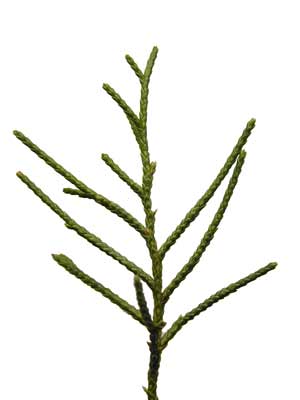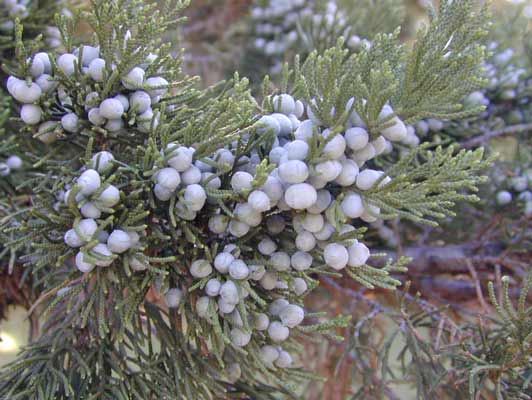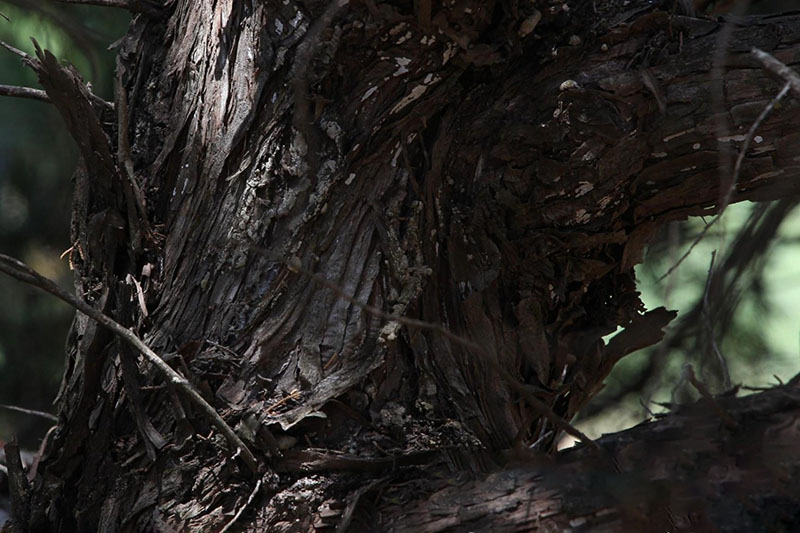Eastern Red Cedar
| Plant Profile | |
|---|---|
| FYUSE 3D Image |
Common Name: Eastern Red Cedar Species Name: Juniperus virginiana Plant Type: Woody Family Name: Cupressaceae |
Examples of Eastern Red CedarJuniperus virginiana
| Plant Facts | |
|---|---|
| Origin | North America |
| Duration | Perennial |
| Sun Preference | Full sun |
| Susceptibility | Cedar-apple rust, bagworm |
| Distribution in the U.S. | Eastern half and west to the Dakotas, Nebraska, Kansas and Texas |
| Distribution in Oklahoma | Throughout the state |
ID Characteristics
- Field Identification Characteristics
- Pyramidal growth form
- Evergreen; scale-like leaves
- Bark reddish brown; shredding in long thin strips
- Light blue cones that look like small berries
- Leaf and Stem Characteristics
- Plant Height: 20-foot diameter, 60-foot height
- Leaves: Juvenile awl-shaped; mature scale-like, 1/16 inches long, distinct odor, bronze-red in winter
- Leaf Type: Simple
- Leaf Arrangement: Opposite
- Leaf Blade Edge: Scale-like
- Leaf Blade Length: 1-2 millimeters
- Growth form: Trees
- Floral Characteristics
- Petal Number: 0
- Flower Timing: Pollination: April-May
- Fruit Type: Cones
| Habitat/Ecology | |
|---|---|
| Soil Preference | Well-drained, deep loam, adapted to many soil conditions |
| Habitat | Rocky, dry, uplands and swampy bottomlands |
| USDA Cold Hardiness Zone | 4º |
| Successional Stage | All |
| Notes | Considered a weed in much of Oklahoma; would not be as prevalent if it were not for fire suppression |
Topics:






